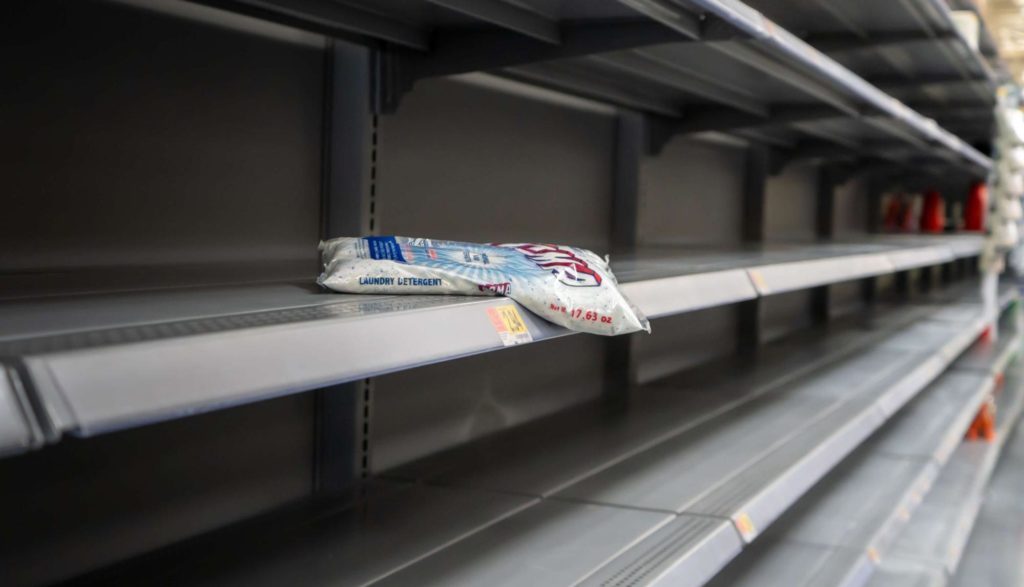
Refrigerated logistics has always been a demanding segment of transportation services due to strict temperature requirements and capital-intensive equipment.
As Australia continues to grapple with supply chain issues caused by the COVID-19 pandemic, we’re seeing additional challenges facing transportation companies and their partners alike — new segments in delivery, higher demands for efficiency, increased cloud integration, increasing volumes of goods, to the continuous mounting of regulations.
The cold chain is crucial for delivering temperature-sensitive goods — primarily food and pharmaceutical products. In order to combat these challenges, stakeholders in the industry must look at ways to drive down costs, become more strategic and address capacity constraints.
To help you stay informed and get prepared, here are our top five trends in refrigerated logistics to watch in 2022.

More Focus On Supplier Relationships
Somewhat comparative to customer relationship management (CRM), supplier relationship management (SRM) is starting to make waves. It involves creating a list of critical suppliers, increasing collaboration between the two parties and finding new ways to make the relationship mutually beneficial.
Competition is fiercer than ever, with new start-ups seeking to up-end traditional industries using advanced technology and push out existing players. Pressure from the pandemic has also led to companies reassessing their supply chain partners in search of ways to minimise risk or cut costs.
Building relationships on mutual benefits, rather than costs, will help to harness better results and provide the foundations needed to make it through tough economic times. Collaboration can lead to co-developing new products and services, reduced costs, greater performance through shared data and information and increased sustainability.
Supplier relationships matter and this will become even more evident in 2022 and beyond.
Wider Adoption Of New Technology Such As TMS
In 2022, expect to see wider adoption of new technology such as Transportation Management Systems (TMS).
TMS provides refrigerated logistics firms with many of the technological tools required for proper organisation and management within a single console. Promising results show it helps improve everything from managing fleets to optimising routes and alerting temperature variations from human error or technical issues.
It’s also useful for tracking delivery drivers in real-time, lowering freight expenses, increasing transparency, and improving overall customer satisfaction scores.
New Segments For At-Home Food Delivery
It’s not just UberEats and Menulog taking over food delivery. Restaurants are confronting the challenges of ongoing restrictions by pivoting to home delivery and working with their logistics partners.
In New York, a family-fun, full-service logistics company with 12 refrigerated frozen trucks and vans put their vehicles to use. NY Logistics president Mitchell Newman shared that logistics companies are “delivering everything from gourmet $50 plate meals, including alcoholic beverage of choice, to smoothies from bars needing to give their loyal customer following a healthy morning boost.”
Whilst we’re yet to hear of similar arrangements in Australia, it could be right around the corner these coming months.

Supermarket Supply Chains To Feel Disruptions
The outbreak of the Omicron variant in Australia and its impact is perhaps most noticeable at the local supermarket. The rapid spread of this strain has caused many workers to miss shifts, causing delays in deliveries and difficulties across the supply chain.
In particular, the virus has hit hard on logistics companies’ workers with up to half of staff off on any given day. Supermarket supply disruptions are expected to continue for weeks warns Woolworths Boss.
What will be the outcome? It’s hoped that cases will come down as community transmission slows and wider availability of rapid antigen tests could pave the way for road transport workers. But more supermarket supply chain disruptions could be coming if there’s another outbreak or a new strain emerges.
Increased Demand From Medical Industry
The medical industry continues to have a driving need for refrigerated logistics, particularly when it comes to pharmaceuticals.
Whether it’s a hospital, nursing home or even a small medical clinic, pharmaceutical deliveries are key to helping patients recover faster. Widespread health concerns and ongoing pressure from the pandemic means that nurses and doctors have to rely on temperature-controlled transport more than ever. Many of the essential medical supplies used in these facilities are temperature sensitive, creating stronger demand for reliable refrigerated vehicles with temperature monitoring systems.
When patients and staff are subjected to undue strain as a result of spiralling cases, refrigerator trucks become even more vital.
Enhance Your Refrigerated Logistics With Scully RSV
You can ensure the integrity of goods with a Scully RSV Truck. For over 30 years, we have been manufacturing and servicing high-quality refrigerator trucks for the cold chain logistics industry. Get in touch with us today to learn more out about our buy or hire deals.

